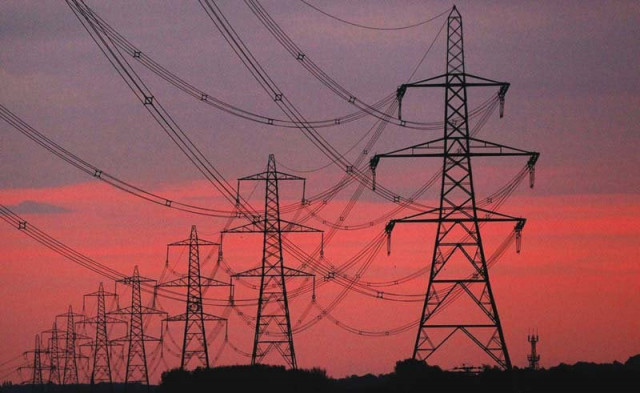NEPRA irked by 'NAB’s meddling' in tariff affairs
Regulator complains the way investigations are being conducted has stifled morale of professionals

PHOTO: REUTERS
Nepra said the way the investigations were being conducted had completely stifled the morale of the regulator’s professionals, adding that the matter in essence had come to the jurisdiction of Nepra and the boundaries beyond which NAB may not intervene.
“A holistic approach is the need of the hour so that confidence of the sector in general and that of Nepra in particular is not unduly hurt,” said a Nepra statement.
Looking at the improvement in operational performance of privatised K-Electric (KE) in terms of attracting more customers, reducing Aggregate Technical and Commercial (AT&C) losses and enhancing distribution capacity during the last 10 years, Nepra in its recent State of Industry Report 2018 said the federal government was exploring the option of privatisation of ex-Wapda distribution companies (XW Discos) to encourage private investment and make them financially self-sufficient which would reduce the burden on the national exchequer.
KE moves NEPRA for Rs20.29b additional recovery
As per the report, KE has significantly reduced its T&D losses as compared to Discos.
Prior to 2009, KE's T&D losses of 35.9% were on par with Hesco’s and Sepco’s T&D losses.
The report further stated that through a combination of loss reduction projects and initiatives such as use of Aerial Bundled Cable (ABC), KE mitigated these losses by 15.5 percentage points to 20.4% in 2018; whereas T&D losses for Hesco and Sepco by the end of 2018 continued to loom over the same range of 29.8% and 36.7%, respectively.
Overall, Discos experienced an increase of 1.62 percentage points in their T&D losses, from 16.7% in 2009 to 18.32% in 2018.
In terms of AT&C losses, KE's have reduced from 43.2% in 2009 to 27.5% in 2018, showing a decrease of 15.7% percentage points; while Discos’ AT&C losses increased by 0.46% percentage points between 2009 and 2018.
The report acknowledged marked improvement in overcoming the problem of overloaded feeders and transformers in Karachi whereas the private power utility also achieved 9% growth in its consumer base from 2016 to 2017, while from 2017 to 2018 it achieved a 6.5% increase in its consumers.
On the other hand, XW-Discos added 4.3% consumers from 2016 to 2017 while such increase was 5.6% from 2017 to 2018.
These figures reflect that since Discos were not able to increase their consumers, their energy base was not adequate to absorb incremental capacity costs due to addition of power generation plants in the system.
The report stated that on an overall basis, XW-Discos had failed to reduce their T&D losses.
The Discos reported actual losses of 18.6% in the FY2013-14, showed a slight dip to 17.95% in FY2016-17, whereas in FY2017-18, they reported losses of 18.32%.
The recovery of billed amount also showed similar trends. The actual recovery ratio was at 89.11% in FY2013-14, which improved to 94.45% in FY2015-16; however, the position again deteriorated to 87.71% in FY2017-18. As a result, the power sector circular debt was touching Rs1,200 billion mark, with continued addition of approximately Rs200-250 billion annually.
NEPRA holds K-Electric responsible for 19 deaths
The federal government contemplated to stop incremental additions to circular debt through certain measures like budgeting subsidy amounts; notification of Nepra-determined tariffs and others to control losses.
However, it is to be noted that such efforts to improve accounting measures, so that balance sheets of Discos showed a healthy position, would not suffice.
It was decided that fundamental issues of governance, capacity and induction of technological improvements in operations were to be addressed forthwith. Performance of XW-Discos and Gencos, throughout this period of more than two decades, called for their due independence as continued centralised control, had defeated the main objectives of the reform process.
In the context of expensive energy mix, the report proposed that the government might revisit earlier decisions to import power from Central Asian States, as it was not expected to replace any other expensive energy generation, whereas it would add to the capacity payment requirements.
It would also require the National Transmission Company for timely development of transmission infrastructure thus adding to the already burdened company in terms of human and financial resources.
The regulator noted that under the given scenario the existing set-up would not be able to deliver; therefore, it was recommended that the structural changes like privatisation of Discos must be given serious consideration to save the sector.



















COMMENTS
Comments are moderated and generally will be posted if they are on-topic and not abusive.
For more information, please see our Comments FAQ